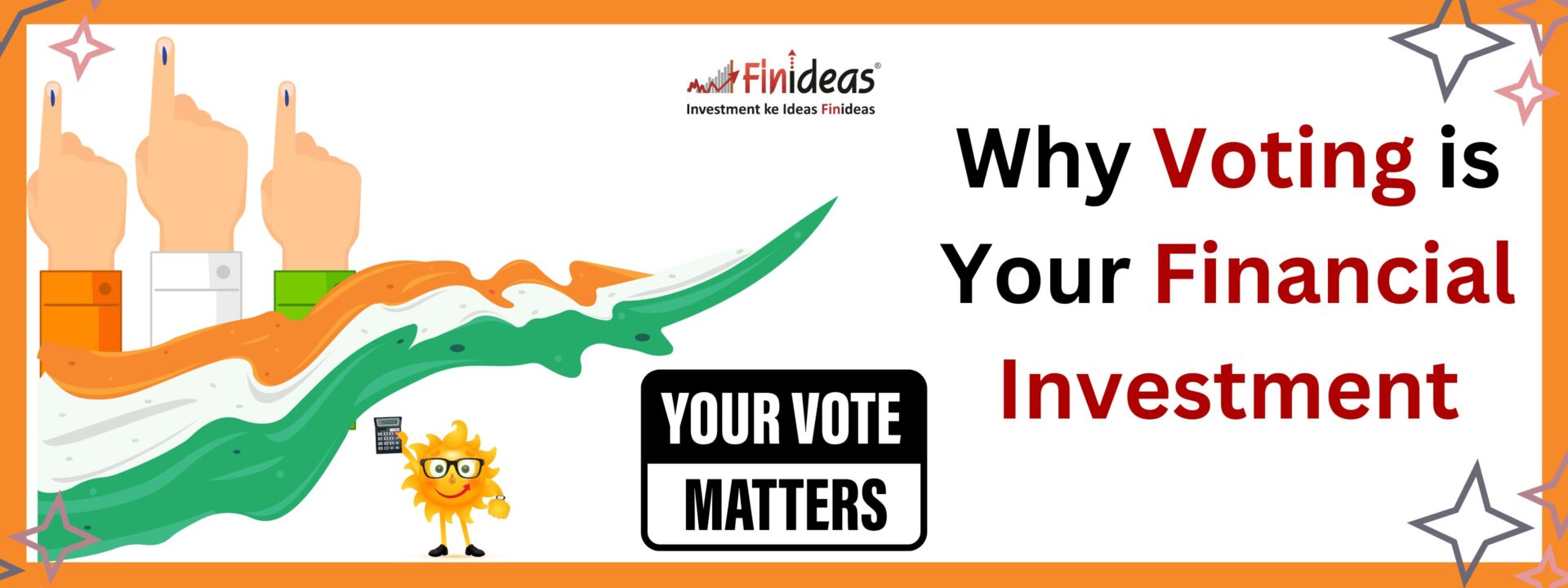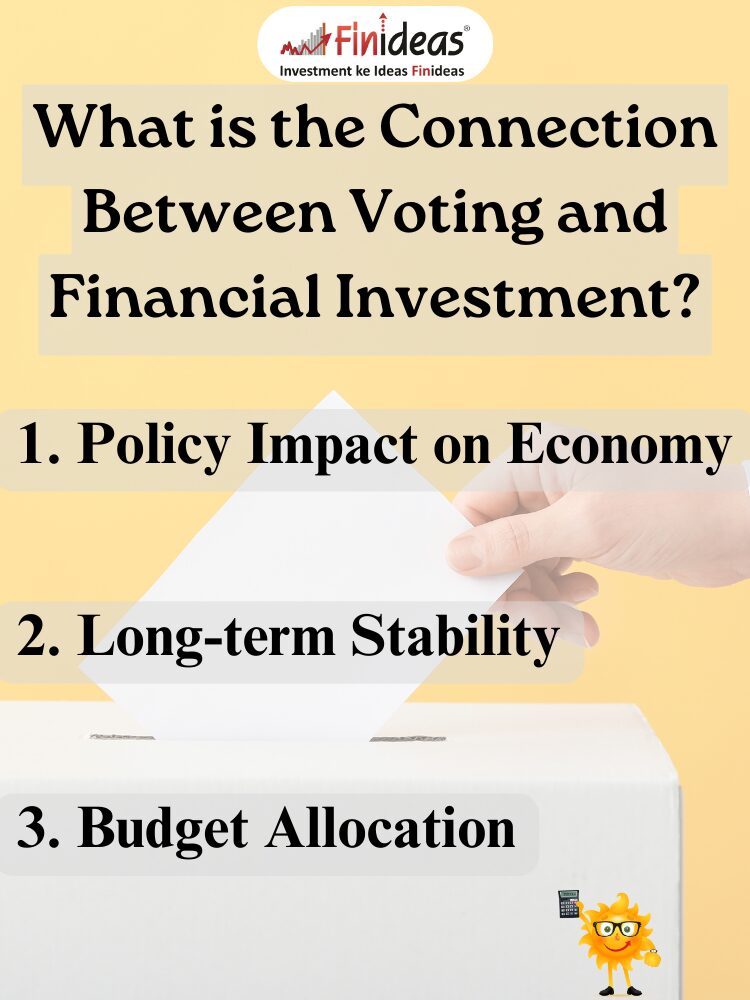Why Voting is Your Financial Investment: A Guide to Understanding Your Civic Duty
In the world’s largest democracy, every vote counts. As citizens of India, we hold the power to shape our nation’s future through our votes. But have you ever considered that voting is not just a civic duty but also a crucial financial investment in your future? In this blog, we’ll explore why voting matters for your financial well-being and how you can make informed choices at the ballot box.
What is the Connection Between Voting and Financial Investment?
Policy Impact on Economy:
The policies implemented by the government directly influence the economic landscape of the country. From taxation to infrastructure development to business regulations, every decision made by elected representatives has a ripple effect on the financial health of individuals and businesses alike.
Long-term Stability:
A stable political environment is conducive to economic growth and investor confidence. By participating in the democratic process, you contribute to the stability of the government, which in turn fosters a favorable climate for investments, job creation, and overall prosperity.
Budget Allocation:
Your vote determines how public funds are allocated across various sectors such as healthcare, education, infrastructure, and agriculture. By electing representatives who prioritize investments in areas that matter to you, you’re essentially safeguarding your own financial interests and those of future generations.
Making Informed Voting Decisions
Research Candidates and Parties:
Before heading to the polls, take the time to research the track record, policies, and promises of the candidates and political parties contesting in your constituency. Look beyond rhetoric and examine their past actions and contributions to understand their commitment to fiscal responsibility and economic growth.
Consider Economic Vision:
Evaluate the economic vision outlined by different parties and candidates. Assess how their proposed policies align with your financial goals and aspirations. Do they prioritize job creation, entrepreneurship, and inclusive growth? Are they committed to fiscal prudence and sustainable development?
Engage in Debates and Discussions:
Participate in debates, town hall meetings, and discussions to gain insights into the perspectives of various stakeholders. Exchange ideas with fellow citizens, economists, and experts to broaden your understanding of the economic implications of different policy proposals.
Your Voice Matters: Comment Below!
As we gear up for the upcoming elections, we want to hear from you. What factors do you consider when voting from a financial perspective? How do you believe your vote can influence India’s economic future? Share your thoughts and insights in the comments section below and let’s continue the conversation on why voting is indeed a crucial financial investment!
Also if you are interested in long term investment then you must know about Index Long Term Strategy.
Conclusion
Voting is not just a right; it’s a responsibility that directly impacts your financial well-being. By exercising your franchise wisely, you’re not only shaping the future of the nation but also safeguarding your own economic interests. So, the next time you head to the polling booth, remember that you’re not just casting a vote; you’re making a strategic investment in your financial future.
Happy Investing!
This article is for education purpose only. Kindly consult with your financial advisor before doing any kind of investment.


